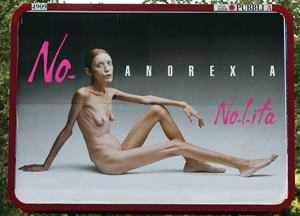2.5 Other disorders
Eating disorders
Anorexia nervosa and bulimia are the best-known eating disorders. While they are often associated with young women and adolescent girls, each can occur in both genders and throughout the age range.
In anorexia the individual aims to lose weight. They will eat very little and purge their body (through vomiting or taking laxatives) to do so. It is thought that disordered body image and views about food and appearance cause severe weight loss. In contrast, individuals with bulimia are likely to binge eat before purging the body; for example, by making themselves vomit.
Personality disorders
This is often referred to as BPD – Borderline Personality Disorder. It describes individuals who demonstrate challenging or anti-social behaviour caused by their disordered thoughts. Individuals might have poor coping skills, so that they get easily frustrated with life challenges, which in turn can lead them into prolonged conflict with family and friends. Due to the difficulty in forming proper relationships, many might self-harm repeatedly and are often described as attention seeking.
Substance-related disorders
Individuals who might be classified as having a substance-related disorder are dependent on drugs, alcohol or other addictive substances. Sometimes freely available drugs, including so-called legal highs, can contribute to mental health problems. Substance misuse can cause both physical and mental health-related problems. If there is substance use or alcohol abuse in conjunction with other mental health problems such as schizophrenia, it can increase the severity of the symptoms. This is usually referred to as dual diagnosis, where specialist services for substance misuse and mental health problems are both involved in the care and treatment of the person.
The types of mental health problems we have described suggest that classifications are clear-cut but this is not always the case. Sometimes the differences between them are blurred. To better understand how mental health problems affect individuals we would like you to now turn to the personal experience of two people who have lived with mental health problems.

